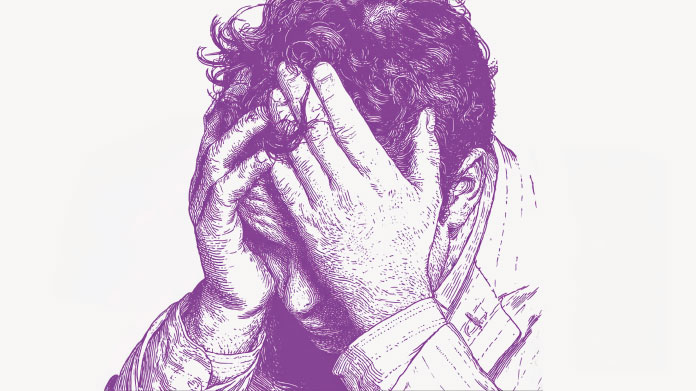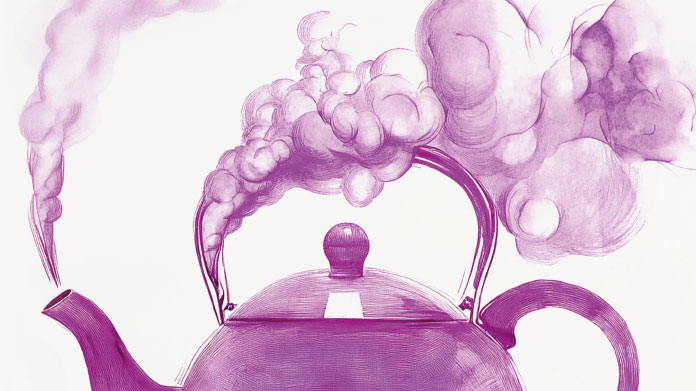St. John’s Wort: how this plant could promote mental well-being
Used for millennia, St. John’s Wort has enjoyed renewed popularity in recent years, primarily for its potential effects on emotional balance and mood. Discover everything you’ve ever wanted to know about St. John’s Wort.

The potential benefits of St. John’s Wort for mental health
St. John’s Wort (Hypericum Perforatum) is a herbaceous perennial, from the Clusiaceae family. It was used in traditional pharmacopoeia to treat insomnia and reduce anxiety. It is considered by some to be the ‘best natural anti-depressant‘ there is.
St. John’s Wort is said to support:
- good emotional balance
- mental and physical well-being ;
- positive mood
- good balance of the nervous system during the menstrual cycle;
- optimal relaxation;
- good quality sleep;
- stimulation of mental capacities;
- strengthening of the body’s defences...
These health claims, allowed by the EFSA (European Food Safety Authority), are currently being examined by this same organisation.
How St. John’s Wort is thought to act on the ‘happy hormones’
St. John’s Wort is known to contain high levels of hypericin, a natural pigment from the naphtodianthrone family.
For a better understanding of how the plant works, we need to focus on our synapses. A synapsis forms a sort of information channel between two neurons in the brain: one which sends the message and the other which receives it.
The neurotransmitters responsible for transferring this information via synapses include serotonin, dopamine and noradrenalin (the famous ‘happy hormones’ associated with feelings of pleasure, well-being and other positive emotions).
The problem is that a significant proportion of these neurotransmitters can be instantly recaptured by the ‘sender’ neurons. The more this happens, the less the brain receives the happiness and pleasure information … and the greater the effect on the individual’s mood.
A number of in vivo tests have shown that the hypericin in St. John’s Wort appears to inhibit the recapture of serotonin, dopamine and noradrenalin (1). The synthetic compounds used in treatments for depression exploit precisely this kind of mechanism.
Choose a St. John’s Wort extract with the right dose of hypericin
According to researchers at the CNRS (Centre National de la Recherche Scientifique) and University Hospital of Montpellier, “only a St. John’s Wort extract with a guaranteed content of active principles has demonstrated therapeutic efficacy”(2).
Indeed the concentration of active ingredients in individual plants can vary considerably depending on the soil, growing conditions, etc. It’s therefore important to check the hypericin content of your supplement, which should ideally be in the region of 0.3% (try, for example, the excellent product St John's Wort Extract). (4)
St. John’s Wort: a few contraindications
As with many plants used in phytotherapy, St. John’s Wort can sometimes interact with other medications and is thus contraindicated in certain cases. Always check with your doctor before taking St. John’s Wort.
St. John’s Wort may affect the efficacy of drug treatments in the following cases:
- transplant patients;
- oral contraception;
- anticoagulant treatment;
- AIDs patients;
- Hepatitis C patients on peginterferon;
- epilepsy;
- hypertension;
- heart failure;
- and asthma (5).
References
- Müldner H, Zöller M. [Antidepressive effect of a Hypericum extract standardized to an active hypericine complex. Biochemical and clinical studies] Arzneimittel-forschung. 1984 ;34(8):918-920.
- https://www.researchgate.net/profile/Sylvie_Rapior/publication/259474999_Le_Millepertuis_ou_St_John's_Wort_Une_indication_therapeutique_en_France_-_De_nombreux_risques_d'interactions_avec_les_medicaments/links/00b7d52c0593c9f0e6000000/Le-Millepertuis-ou-St-Johns-Wort-Une-indication-therapeutique-en-France-De-nombreux-risques-dinteractions-avec-les-medicaments.pdf
- Linde K, Berner MM, Kriston L. St John’s wort for major depression. Cochrane Database of Systematic Reviews 2008, Issue 4. Art. No., https://serval.unil.ch/resource/serval:BIB_97D9CEAA4408.P001/REF.pdf
- KECK, Martin E, et al. Le traitement des troubles anxieux : 1ère partie : Trouble panique, agoraphobie, anxiété généralisée, phobie sociale, phobies spécifiques. Swiss Medical Forum, 2011, vol. 11, no. 34, p. 558-566, http://archive-ouverte.unige.ch/unige:32699
- Revue Prescrire, 2004, 24 (250) : 362-369.
Keywords
15 Hours
Perfect services
Perfect services, perfect support, great articles about products
Michaela Alali Beitlová
1 Days
Great experience and effective supplements
I’ve purchased many types of supplements from this company over the course of years to treat a few issues, and I’m satisfied with their quality. After using them consistently for a period of time, I can say they met my expectations and I could feel real health benefits that built up over time. Deliveries are always quick. I recommend this company to anyone looking for high-quality supplements.
Giordano
1 Days
Es hat alles gestimmt
Es hat alles gestimmt. Top
marina thieme
4 Days
Great product
Great product, but still evaluating its effectiveness. Highly recommended. Super efficient delivery.
Chalise
8 Days
Quality products
Quality products , efficient and effective customer service. You can’t ask more
CLaudia
14 Days
Good quality product and customer service.
So far, I'm liking this product, and the customer service was very good.
ELZL
21 Days
The products I use are excel·lent
The products I use are excel·lent
ROSAS Josep Maria
29 Days
Delivery is prompt and I never saw a…
Delivery is prompt and I never saw a quality problem with the manufacturing. It is not possible to assess efficacy on a personal basis, since too many factors come into play. Efficacy can only be assessed statistically with a sufficient number of cases.
Roger De Backer
30 Days
I collaborates with the Supersmart…
I collaborates with the Supersmart more than 10 years. Every thing is going good. Quality of the things is good. Delivery comes in time. Five stars definitely !!!
Oleksiy
30 Days
All good
Simple, frictionless site, easy ordering, good delivery updates and execution.
Chris Robbins
32 Days
I feel better
I feel better
Peter Ammann
32 Days
Prompt delivery
Prompt delivery
JAKUB Radisch
34 Days
My new go-to for top quality supplements!
I am buying more and more of my supplements from this superb, high quality company. Cannot recommend it enough. Plus, excellent customer service with a quick, helpful team and speedy deliveries. Highly recommend Supersmart!
Cecilie H.
37 Days
SUPERSMART WHAT ELSE👍
SUPERSMART WHAT ELSE👍
DIEDERLE Christophe
40 Days
Excellent quality products with…
Excellent quality products with innovative formulas, as someone who has been suffering with acid reflux, these supplements have been lifesavers.
Oriana Moniz



